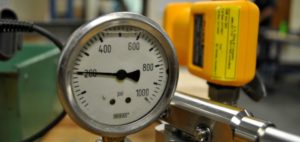Precision Measurement Services
J.A. King is now Cross Precision Measurement! As the leading precision measurement professionals since 1939, the team at our precision measurement group has a wide range of expertise in services ranging from calibration to testing and inspection. Our services include an industry leading scope of capability for our customers. Whether you need one scale repaired and calibrated or full-time onsite quality control and asset management services, we strive to be your valued choice for precision measurement.
Take advantage of our vast knowledge and capabilities to instill integrity in your quality system, reduce your risk, and implement best-in-class measurement solutions. Our team members are located across a network of calibration and testing laboratories in states throughout the Southeast and Midwest U.S. and take pride in delivering world-class customer service and technical expertise.



















